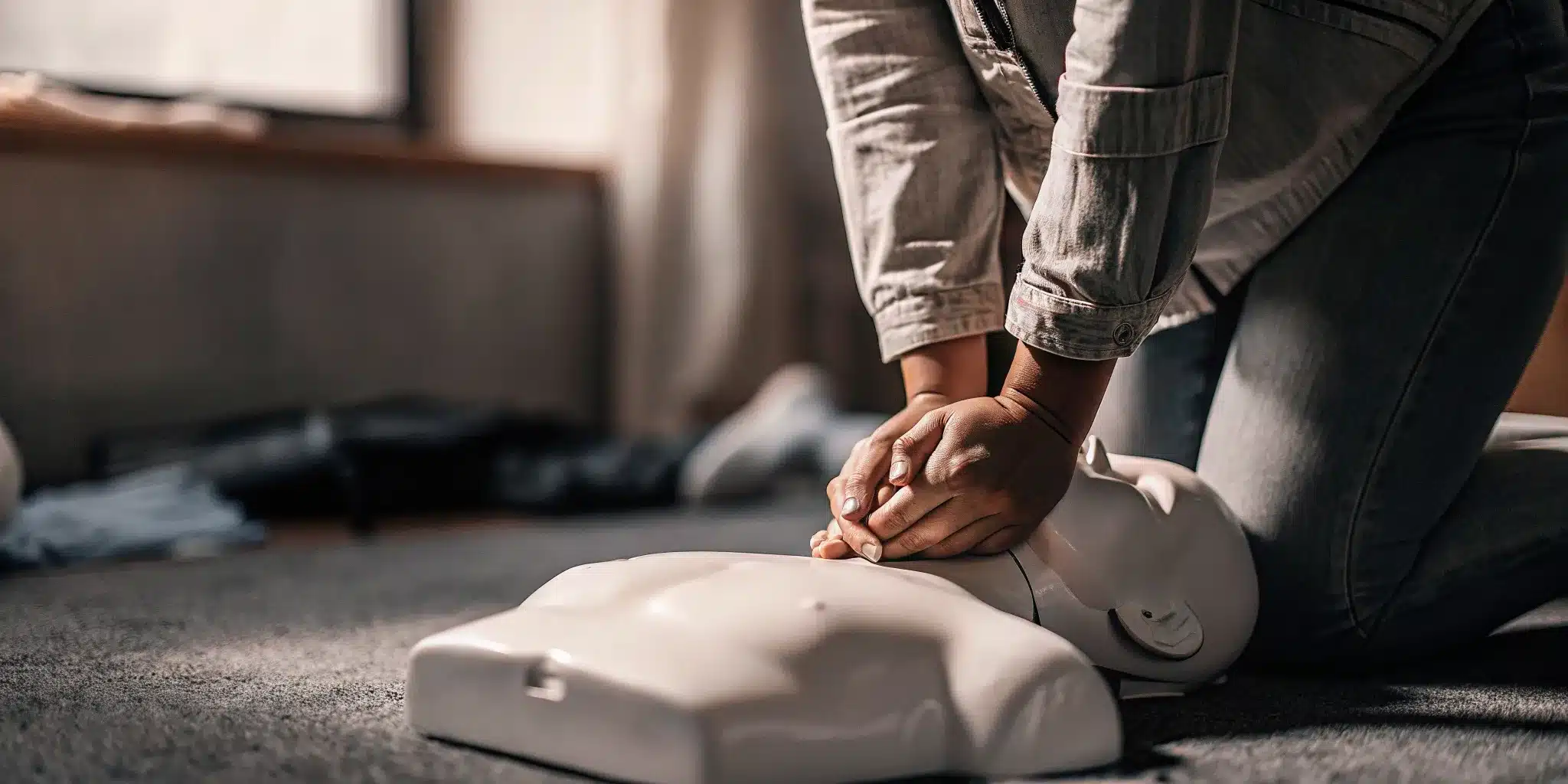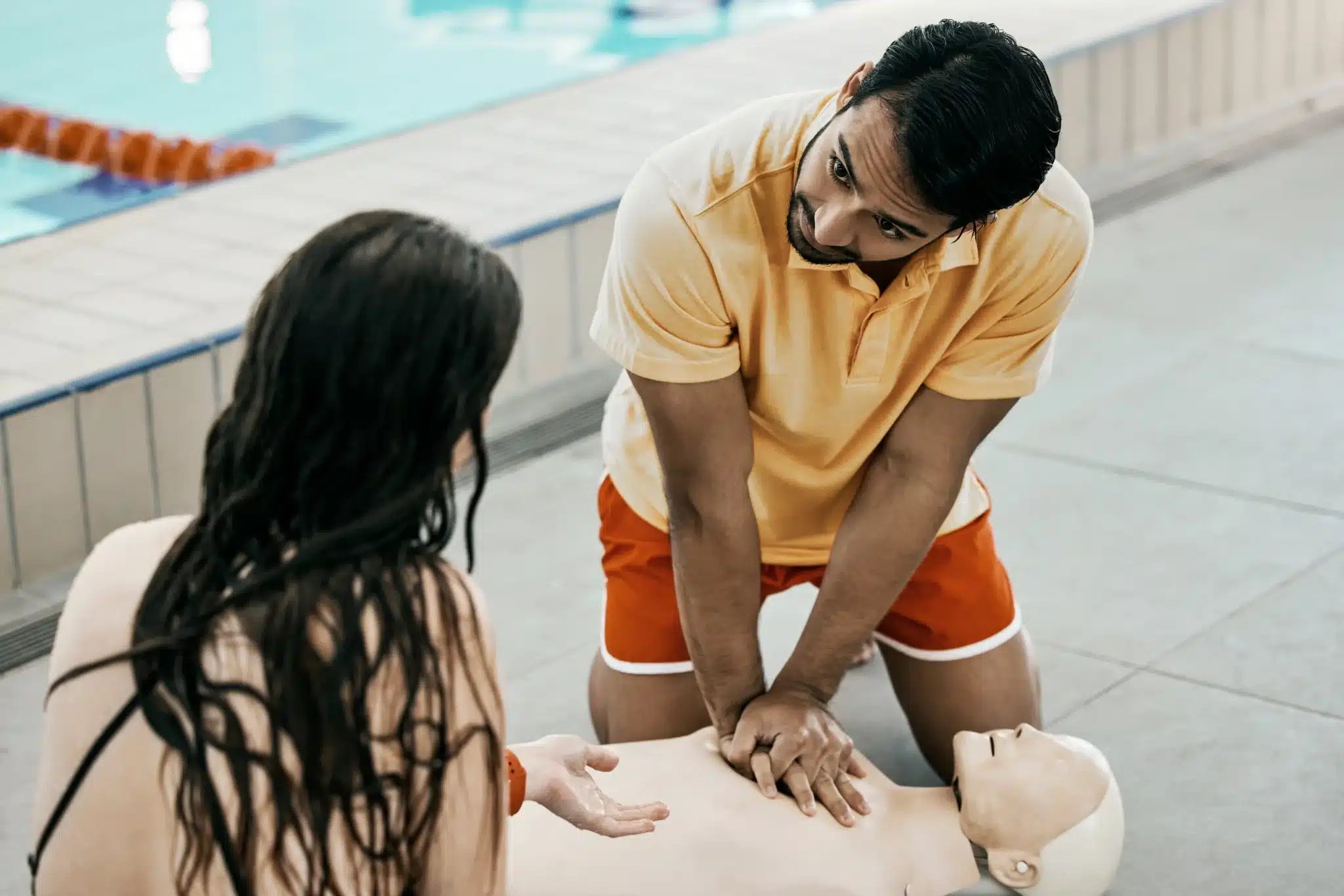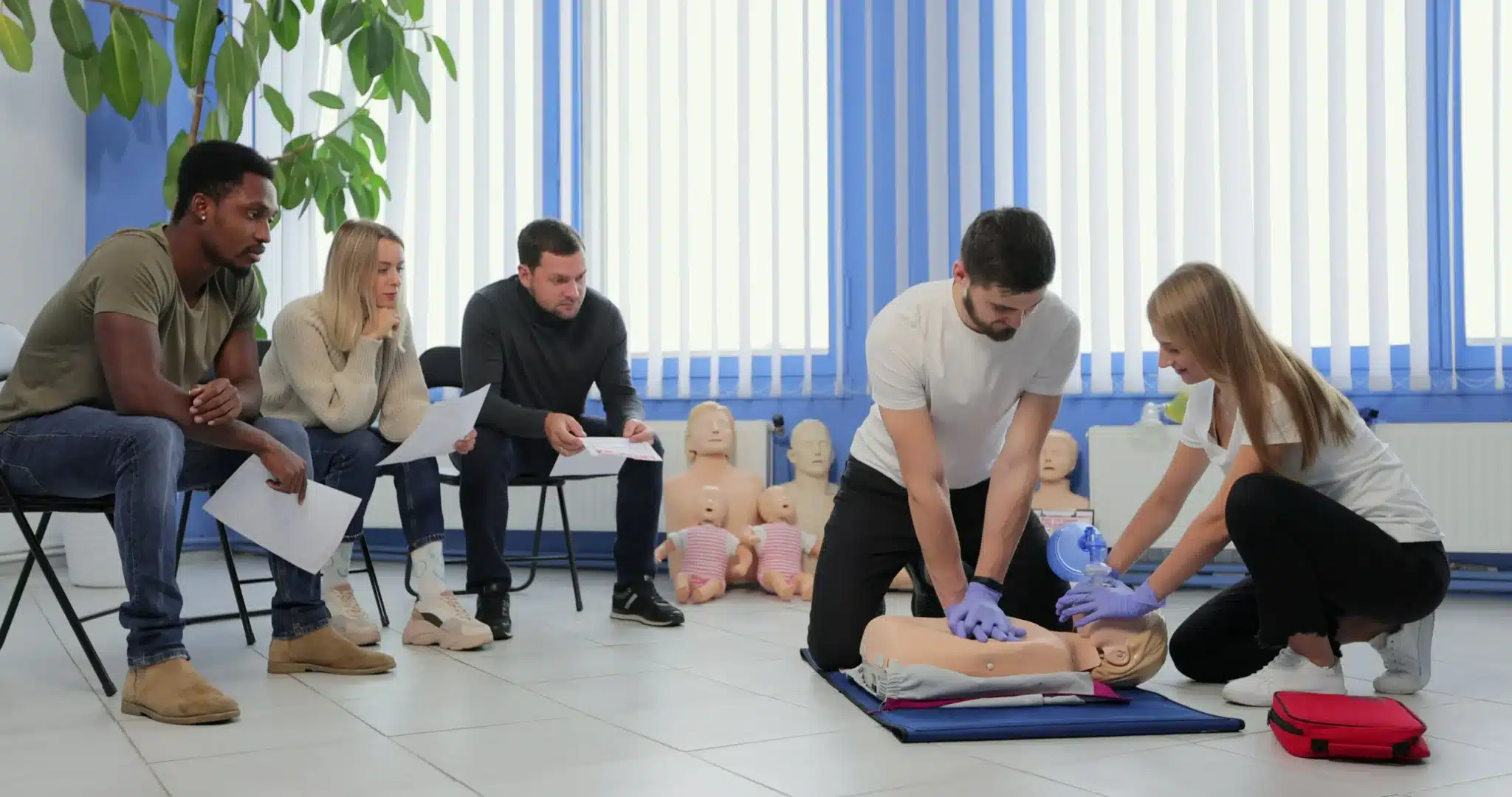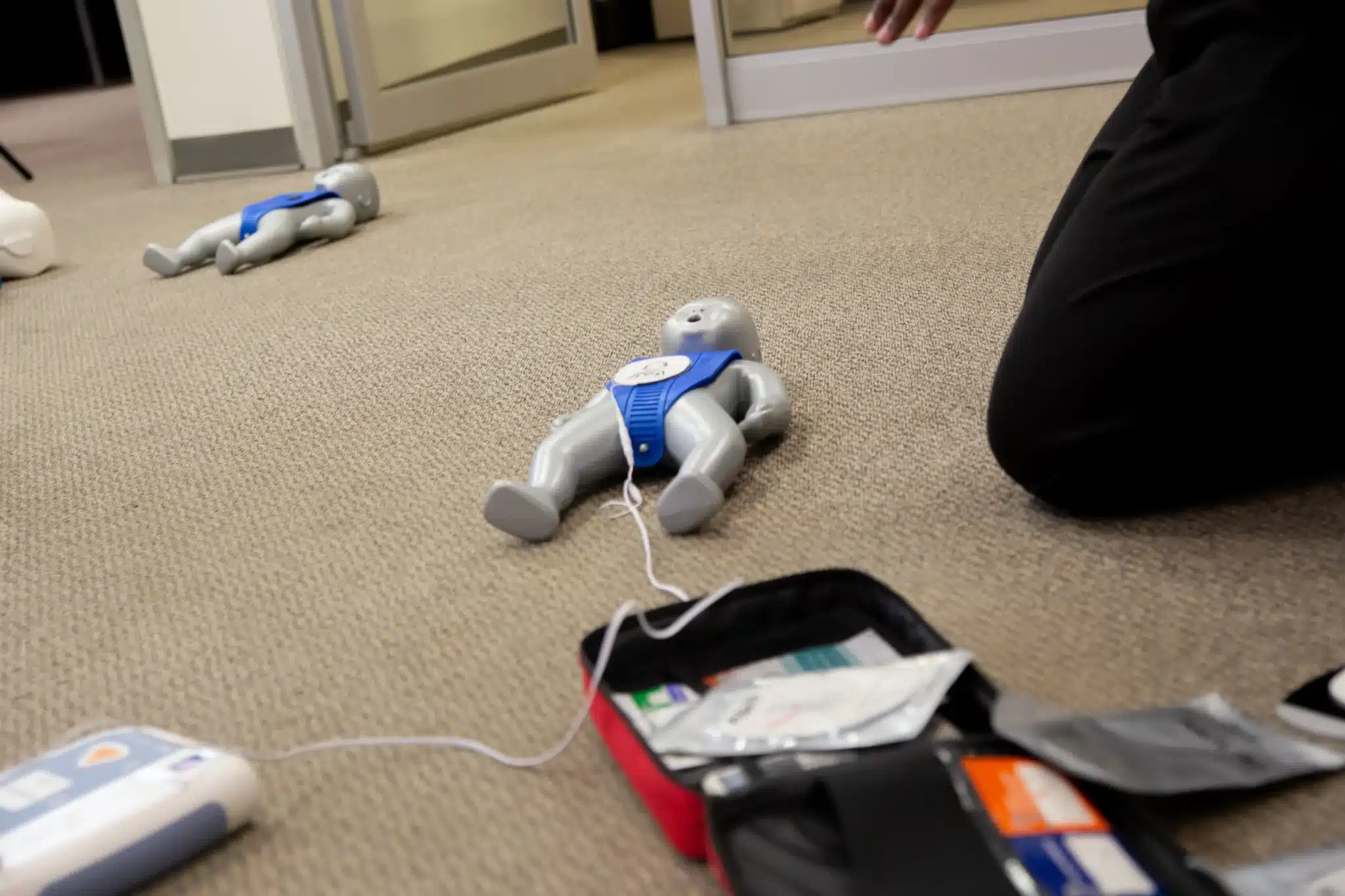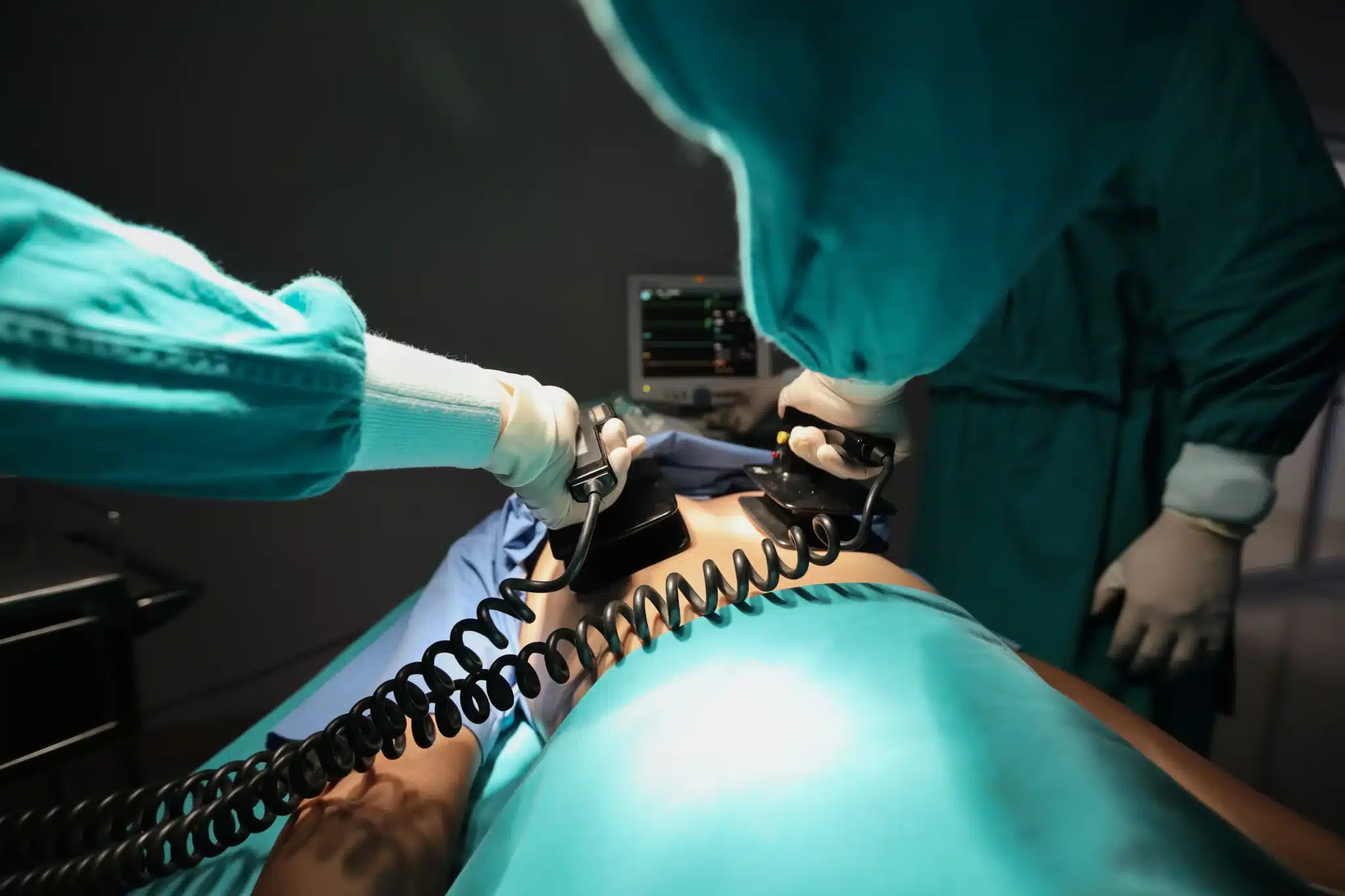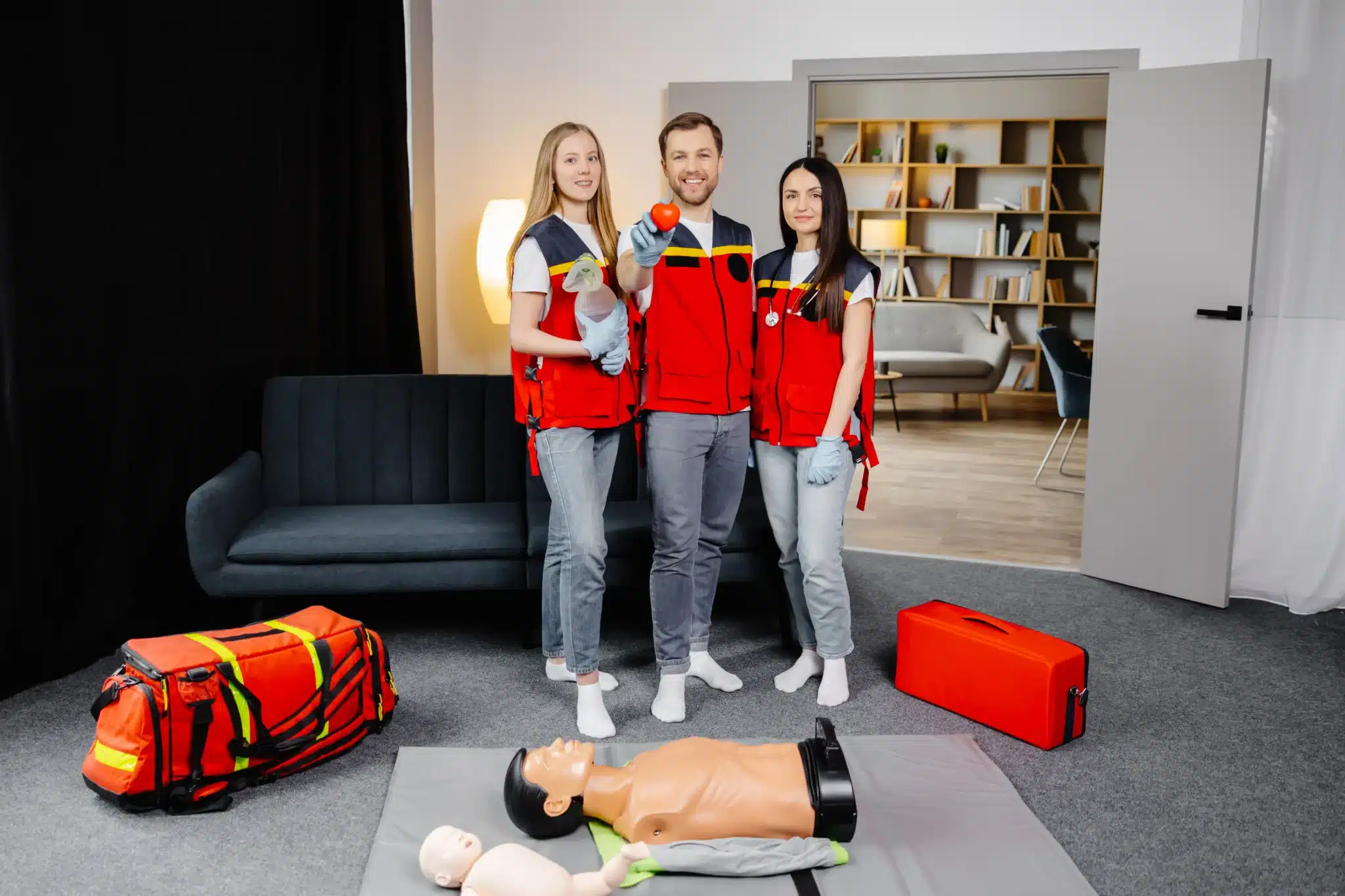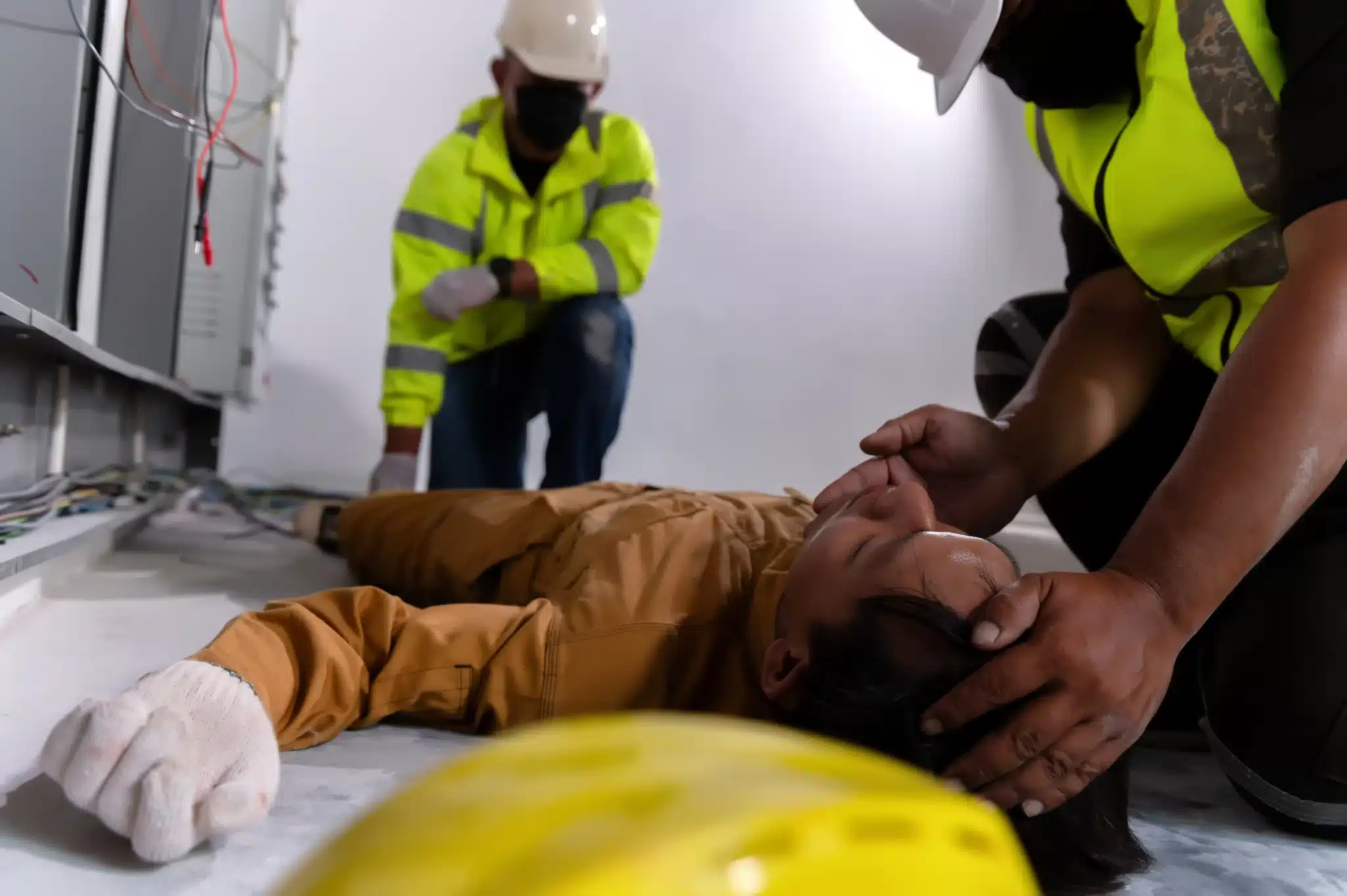CPR training in Newark empowers you with the skills to respond effectively during medical emergencies. This guide explores the importance of CPR training, the various types of courses available in Newark, and how to choose the right training provider for your needs. We’ll cover everything from basic CPR and first aid to advanced certifications like BLS, ACLS, and PALS. Whether you’re looking for CPR training in Newark for yourself, your family, or your workplace, this guide will provide you with the information you need to make an informed decision and become a vital link in the chain of survival. We’ll also discuss the costs associated with CPR training in Newark and explore flexible learning options to fit your busy schedule.
Key Takeaways
- CPR training is a powerful tool: Equipping yourself with CPR and AED skills allows you to confidently respond to medical emergencies and potentially save a life. Explore the various course formats available to find one that suits your learning style and schedule.
- Select the right CPR course: Whether you need basic life support skills or advanced cardiac care training, choose a course that aligns with your individual or professional goals. Look for accredited providers with qualified instructors and ample hands-on practice opportunities.
- Maintain your CPR skills: Regularly renew your certification to stay up-to-date on the latest life-saving techniques and maintain your confidence in responding to emergencies. This ensures you’re always prepared to provide effective assistance when needed.
What is CPR Training in Newark?
CPR training in Newark gives you the skills to respond to medical emergencies. These courses cover cardiopulmonary resuscitation (CPR) and how to use an automated external defibrillator (AED). This training is important for everyone—from healthcare professionals to everyday people—because it provides life-saving techniques you can use anywhere. CPR empowers you to make a difference in critical situations, and it’s a valuable skill that can help save lives.
Several organizations offer CPR training in the Newark area. CPR Certification Newark is one option for American Heart Association (AHA) certified classes, including CPR-only and combination CPR/First Aid courses. They focus on building confidence through practical, hands-on training. For healthcare providers, Newark Beth Israel Medical Center offers specialized courses. The American Red Cross also provides various CPR and AED training options throughout New Jersey, with in-person, online, and blended learning formats. For those located closer to Fremont, you can also find convenient and comprehensive CPR training in Fremont through Fremont CPR Classes.
Why CPR Training Matters
CPR training gives you the skills to respond effectively during medical emergencies. Over 500,000 cardiac arrests happen each year in the US, highlighting how important CPR training is. Learning CPR can significantly increase survival rates. Even if your certification has expired, the CDC still recommends performing CPR until professional help arrives. Taking action immediately can save lives. CPR and first-aid training are also essential for a safer, more prepared community in Newark. These skills empower individuals to help others and contribute to a more resilient community. The American Heart Association (AHA) offers respected CPR certification because of its global recognition, high-quality materials, and evidence-based guidelines. For those in or near Fremont, Fremont CPR Classes offers a variety of AHA-certified courses.
CPR Courses in Newark
Newark offers various CPR courses designed for everyone from community members to healthcare professionals. Whether you’re looking for basic life support skills or advanced cardiac care training, you’ll find a program that fits. Let’s explore the different types of CPR training available in Newark.
Adult CPR
Adult CPR courses teach you how to recognize cardiac arrest and respond effectively. You’ll learn chest compressions, rescue breaths, and how to use an automated external defibrillator (AED). These essential skills can help you save a life during a critical situation. CPR Certification Newark offers American Heart Association (AHA) certified classes covering adult CPR and AED use.
Child & Infant CPR
Child and infant CPR techniques require specific adjustments due to the smaller size and different physiology of younger individuals. These courses teach modified chest compressions, rescue breaths, and how to address choking hazards. CPR Certification Newark ensures participants are prepared for emergencies involving all ages by including child and infant CPR and AED training.
First Aid & CPR
Combining CPR with first aid training creates a well-rounded approach to emergency response. You’ll learn to manage various situations, from bleeding and burns to fractures and allergic reactions. CPR Certification Newark offers combined CPR/First Aid classes, making it convenient to develop these valuable skills.
BLS
Basic Life Support (BLS) training is crucial for healthcare providers and other professionals responding to medical emergencies. BLS courses at the Newark Beth Israel Medical Center CPR Training Center cover single-rescuer and team-based CPR, emphasizing high-quality compressions and effective team dynamics.
ACLS
Advanced Cardiac Life Support (ACLS) expands on BLS skills, equipping healthcare professionals with the knowledge and techniques to manage complex cardiac emergencies. ACLS training at Newark Beth Israel Medical Center covers advanced treatment protocols, teamwork, communication, and post-cardiac arrest care.
PALS
Pediatric Advanced Life Support (PALS) addresses the specialized needs of infants and children during medical emergencies. This PALS training at Newark Beth Israel Medical Center aims to improve the quality of care and outcomes for seriously ill or injured young patients.
Top Newark CPR Training Providers
Finding the right CPR training can feel overwhelming. To simplify your search, we’ve compiled a list of reputable providers in Newark. Remember to visit each organization’s website for the most current course schedules and pricing.
Fremont CPR Classes
Fremont CPR Classes offers various American Heart Association courses, including BLS, ACLS, and PALS. They also offer the RQI program, a convenient way for healthcare professionals to recertify. Serving Fremont, Newark, and San Jose, they’re known for high-quality instruction and competitive pricing. They also offer discounts for group classes. For those looking for CPR training throughout Northern California, Fremont CPR Classes maintains a helpful directory of CPR training providers. Contact them today to learn more.
Newark Beth Israel Medical Center
The Newark Beth Israel Medical Center CPR Training Center focuses on essential life-saving skills for healthcare providers. Visit their website for details on their healthcare provider courses and schedules.
American Red Cross Newark Chapter
The American Red Cross offers a range of CPR/AED training options, including in-person, online, and blended learning. This flexible approach accommodates various learning styles and schedules.
CPR Certification Newark
CPR Certification Newark is an American Heart Association-certified training site. They’re known for providing high-quality CPR instruction.
Newark Fire Department Community Programs
The Newark Fire Department provides CPR training through its community programs, equipping residents with essential life-saving skills. For more information on schedules and availability, contact the fire department directly.
Brooks CPR NY NJ
Brooks CPR offers BLS, ACLS, and PALS certification and recertification courses for healthcare professionals. With a convenient Newark location, they focus on preparing professionals for emergency situations.
What Happens in CPR Training?
CPR training equips you with the skills and knowledge to respond effectively during medical emergencies. Let’s break down what you can expect during a typical CPR class.
Course Length & Format
CPR training courses usually take about three hours, though the exact time can vary based on the class format and content. Some courses might be as short as two hours, while others run a bit longer, offering flexibility for busy schedules. Fremont CPR Classes offers a variety of course times to accommodate your needs.
Skills You’ll Learn
You’ll gain several essential skills in CPR training. These include adult, child, and infant CPR techniques, along with how to use an Automated External Defibrillator (AED). The BLS Provider course focuses on core life support skills for single rescuers and teams, emphasizing high-quality CPR and teamwork. For more advanced training, consider exploring ACLS certification.
Hands-on Practice
In-person CPR classes offer invaluable hands-on training. This practical experience is essential for truly mastering the techniques. You’ll participate in exercises that reinforce your skills, leading to a certification that meets OSHA requirements. This hands-on approach ensures you’re confident and prepared to act in a real emergency.
Getting Certified
Once you successfully complete the CPR training, including the in-person skills session, you’ll receive your certification card. This card is typically valid for two years. Many providers, including Fremont CPR Classes, issue certification cards the same day as the course, so you can immediately put your new skills to use. For more information, contact us to learn about our certification process.
CPR Training Costs in Newark
CPR training is an investment in life-saving skills, and understanding the associated costs can help you plan your training. Several factors influence pricing, so let’s break them down.
Pricing Factors
CPR training costs depend on the type of certification you need, the training provider, and your location. For example, basic CPR classes in Newark may cost around $70, while combined CPR and First Aid training often runs closer to $90. More advanced certifications like BLS, ACLS, and PALS for healthcare providers typically come with a higher price tag. Contacting providers directly or checking their websites is the best way to get accurate pricing.
Average Costs
In Newark, you can generally expect to pay between $40 and $60 per person for basic CPR certification. Specialized courses like BLS for Healthcare Providers usually range from $60 to $80. Remember, these are averages, and prices can vary. It’s always a good idea to check with specific training centers like Fremont CPR Classes for their current rates, especially if you’re in the Fremont, Newark, or San Jose area.
Group Rates & Discounts
If you’re coordinating training for a group, look for providers that offer discounted rates. This can be a cost-effective way to train your team or organization. Explore options like group discounts to make training more accessible for everyone. For larger groups, reaching out to training centers directly to discuss custom pricing can be beneficial.
ROI for Individuals & Businesses
While there’s an upfront cost for CPR training, consider the invaluable return on investment. Knowing CPR can truly be the difference between life and death. For individuals, this knowledge provides peace of mind and the ability to assist in emergencies. For businesses, investing in CPR training demonstrates a commitment to employee safety and can even fulfill workplace safety requirements. A prepared workforce is a safer workforce, and the potential to save a life makes the investment worthwhile.
Choosing a CPR Training Provider
Finding the right CPR training provider is crucial for a valuable learning experience. Here’s what to consider:
Accreditation & Certification
Look for providers accredited by nationally recognized organizations like the American Heart Association (AHA). Accreditation ensures the training aligns with established guidelines and is widely accepted. For those in Fremont, Newark, or San Jose, finding a certified provider is easy, as Fremont CPR Classes offers AHA-compliant CPR training across these areas.
Instructor Qualifications
Experienced, certified instructors make all the difference. Inquire about their credentials and ongoing training. The best instructors stay updated on the latest CPR guidelines and techniques, ensuring you receive high-quality instruction. Fremont CPR Classes prioritizes instructor qualifications to maintain a high standard of training.
Class Size & Hands-on Practice
A smaller class size allows for more personalized attention from the instructor. Ample hands-on practice with mannequins and equipment is essential for developing muscle memory and confidence. Ask about the student-to-mannequin ratio to ensure adequate practice time. Consider reaching out to Fremont CPR Classes to discuss class size and structure.
Reviews & Testimonials
Reading reviews and testimonials from past students offers valuable insights into a training provider’s strengths and weaknesses. Positive feedback can give you confidence in your choice. Check our Northern CA CPR directory for more training providers. Don’t hesitate to contact Fremont CPR Classes to learn more about our programs and group discounts.
Flexible CPR Learning
Finding the right CPR training often comes down to format. Luckily, there are several options available in Newark, so you can choose the learning style that best suits your schedule and needs. Let’s explore the most common types: in-person, online, blended learning, and on-site group training.
In-Person Training
In-person CPR training offers hands-on learning and direct interaction with a certified instructor. This format allows you to practice skills in a controlled environment and receive immediate feedback. For many, the tactile experience of performing compressions on a manikin and practicing rescue breaths builds confidence and reinforces learning. In-person classes are ideal for those who thrive in a traditional classroom setting and value face-to-face instruction.
Online Courses
Online CPR courses provide a convenient alternative for those with busy schedules or limited access to in-person classes. The American Red Cross offers online CPR/AED training, allowing you to learn at your own pace and from anywhere. However, while online courses offer flexibility, they typically don’t include the hands-on practice required for certain certifications, such as those mandated by OSHA. Therefore, online-only training may not be suitable for all situations.
Blended Learning
Blended learning combines online learning with the practical application of in-person training. This format typically involves completing the theoretical portion of the course online, followed by an in-person skills session. The Red Cross also offers this blended learning option. This approach allows you to learn the fundamentals at your own pace and then refine your skills with hands-on practice under the guidance of an instructor.
On-Site Group Training
For businesses and organizations in Newark, on-site group training offers a convenient and cost-effective way to train multiple employees at once. Providers like Brooks CPR specialize in delivering on-site CPR and first-aid training tailored to the specific needs of your workplace. This approach eliminates the need for employees to travel to off-site training locations and allows for a consistent learning experience. On-site training can be customized to address industry-specific safety requirements and can be scheduled at your convenience.
Renew Your CPR Certification
CPR skills are essential for responding to emergencies, but they don’t last forever. Regular renewal ensures you stay up-to-date on the latest life-saving techniques and maintain your confidence in responding to crises.
Renewal Requirements
CPR certifications typically expire every two years. This standard timeframe keeps everyone aligned with the latest CPR guidelines and best practices. Both the American Red Cross and many online providers follow this two-year cycle. As your certification nears its expiration date, you’ll need to take a renewal course, often a shorter refresher covering core skills and any updated guidelines.
Continuing Education
Emergency care is a constantly evolving field. Organizations like the American Heart Association (AHA) regularly update their guidelines based on the latest research. These updates often involve changes to CPR techniques, like those reflected in the BLS course. Staying informed about these changes and pursuing continuing education demonstrates your commitment to providing high-quality care. For healthcare providers, it’s especially important to check with your employer about specific requirements, as some hospitals and clinics may have additional training protocols.
Common CPR Training Concerns
It’s natural to have questions before signing up for CPR training. Here are some common concerns and their answers to help you feel confident in your decision:
Certification Validity
One of the most frequent questions is whether online CPR certification is valid. The short answer is: it can be. The key is to ensure your certification comes from a recognized organization like the American Heart Association (AHA) or the American Red Cross (ARC). Our courses at Fremont CPR Classes meet these standards, so your certification will be widely accepted.
Training Effectiveness
You might also wonder which program offers the most effective training. The AHA is often considered the gold standard for CPR training due to its comprehensive, evidence-based approach. As a woman-owned AHA Training Center, we’re proud to offer the same high-quality curriculum used nationwide.
Time Commitment
We understand that your time is valuable. Many people ask how long CPR classes take. Most CPR courses are approximately three hours, allowing you to learn essential life-saving skills efficiently. Check our website for specific course durations. We offer group discounts as well.
Online vs. In-Person Acceptance
Another common question concerns the acceptance of online versus in-person training. While online-only CPR training might be convenient, it typically doesn’t meet regulatory requirements for many workplaces, especially those with OSHA standards. These often require a hands-on skills assessment component. Blended learning options (combining online coursework with in-person skills sessions) are often a good solution. Contact us to discuss the best option for your needs. We offer various formats to fit your schedule and learning preferences. You can also find additional CPR training resources in our Northern CA CPR directory.
Related Articles
- Fremont CPR Classes: Your Complete Guide – Fremont CPR Classes
- Why CPR is Important in Healthcare – Fremont CPR Classes
- Workplace CPR and First-Aid Training Benefits
- Best BLS ACLS PALS Training in Fremont – Fremont CPR Classes
- Course Preparation – Fremont CPR Classes
Frequently Asked Questions
Is online CPR training enough to meet workplace requirements? Online-only CPR training often doesn’t fulfill requirements for many workplaces, especially those following OSHA standards. These standards typically mandate a hands-on skills assessment, which online courses can’t provide. Blended learning (online coursework combined with an in-person skills session) is usually a suitable alternative. For specific workplace requirements, it’s always best to check with your employer or relevant regulatory bodies.
What’s the difference between CPR and First Aid training? CPR focuses specifically on life-saving techniques for cardiac arrest and respiratory emergencies. It covers chest compressions, rescue breaths, and using an AED. First Aid training addresses a broader range of injuries and illnesses, such as burns, cuts, fractures, and allergic reactions. While distinct, these skills complement each other, providing a comprehensive approach to emergency response. Many training centers offer combined CPR/First Aid courses for a well-rounded skill set.
How long does CPR certification last, and how do I renew it? CPR certifications are typically valid for two years. Renewal involves taking a refresher course that covers core skills and any updated guidelines. This ensures your knowledge and techniques remain current and aligned with the latest best practices. Check with your certifying organization or training provider for specific renewal requirements and course availability.
What if I’m nervous about performing CPR in a real emergency? It’s completely normal to feel apprehensive about using CPR in a real-life situation. That’s why high-quality training emphasizes hands-on practice and realistic scenarios. This builds muscle memory and confidence, preparing you to respond effectively under pressure. Remember, any attempt at CPR is better than none, and your actions can significantly impact someone’s chances of survival.
Which CPR certification is most widely recognized and respected? Certifications from the American Heart Association (AHA) and the American Red Cross (ARC) are widely accepted and respected. Both organizations adhere to high standards and provide comprehensive training based on the latest scientific guidelines. When choosing a training provider, ensure their courses align with either AHA or ARC guidelines to guarantee a recognized and valuable certification.
